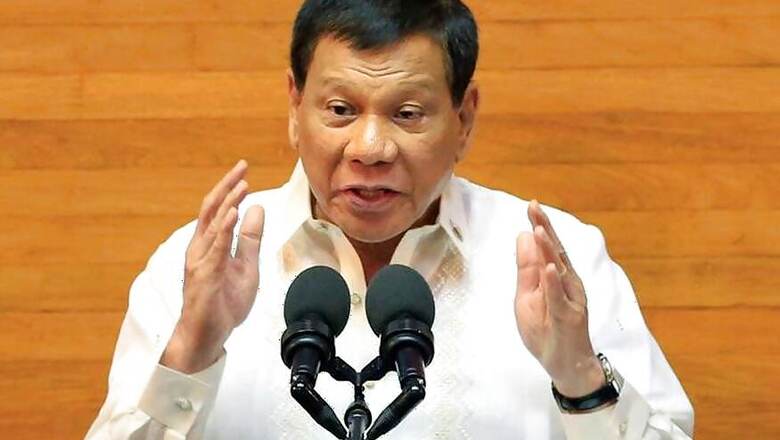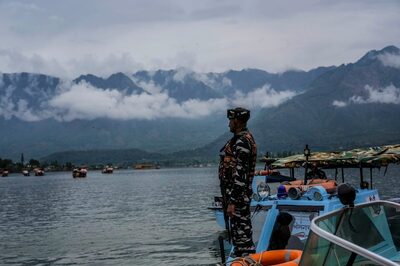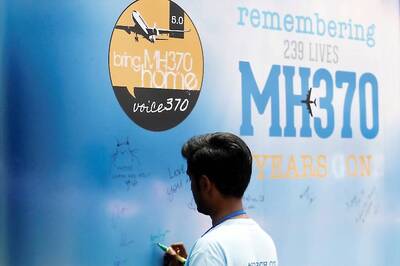
views
Manila: Philippine President Rodrigo Duterte has warned he is prepared to establish a "revolutionary government" to fend off alleged efforts to oust him, fuelling fears of a looming dictatorship.
He issued the warning on state television late Friday as he railed against the press, European lawmakers and other critics of his drug war that has left thousands dead and led rights groups to warn of a crime against humanity.
Duterte said he would resort to a revolutionary government, as opposed to martial law that would require congressional approval, if communists and other opponents tried to destabilise his rule.
"If your destabilisation is taking place and there is chaos already, I will not hesitate to declare a revolutionary government until the end of my term and I will arrest all of you and we can go to a full-scale war against the reds," Duterte said, in reference to communist rebels who have waged a nearly 50-year insurgency.
Duterte alleged the US Central Intelligence Agency was part of a plot to destabilise him, and warned he would jail all of his opponents as well as the communist leaders.
"I will declare a revolutionary government, you are all arrested. I am not scaring people, just remember that," he said.
Dictatorship fears
Duterte cited the precedent set by Corazon Aquino, who established a revolutionary government soon after leading a "People Power" uprising in 1986 that ended the dictatorship of Ferdinand Marcos.
Aquino sacked all elected officials, abolished Congress and tore up the 1973 constitution in favour of a provisional charter.
But she then ensured a new constitution was written and stepped aside after elections in 1992. She is revered by many Filipinos who see her as a heroine of democracy.
To prevent a recurrence of a dictatorship, the post-Aquino constitution limited presidents to a single term of six years.
Duterte's critics fear the 72-year-old, who has repeatedly threatened to impose martial law, is intent on dragging the country back into dictatorship and handing himself more freedom in prosecuting his drug war.
"Definitely, what it all means is that he alone will rule and we're going back to the Marcos dictatorship," said former House of Representatives member Neri Colmenares, a member of the leftist Bayan Muna (Nation First) party.
Colmenares told AFP the revolutionary government threat was part of Duterte's "established pattern of intolerance to dissenting voices and his belief that brute force will solve all problems".
One of Duterte's fiercest critics, Senator Leila de Lima, is in jail on drug trafficking charges she and rights groups say were fabricated to silence her.
- Stop the killings -
Duterte has vowed to "destroy" another senator who is critical of him, while his allies in Congress are seeking to impeach the Supreme Court chief justice after she criticised parts of the drug war.
Duterte this week threatened to send home all European ambassadors because he believed they were criticising the drug war, although his spokesman later said the president incorrectly based his assumptions on media reports.
Some 3,000 people defied the president's warning by joining a rain-soaked street protest in Manila on Saturday, where they called on Duterte to "stop the killings" and to disclose what an opposition senator alleged were his secret bank accounts.
Duterte was elected last year largely on an incendiary law-and-order platform in which he promised to eradicate illegal drugs in society by killing 100,000 people.
Since he took office 15 months ago, police have reported killing 3,850 people in anti-drug operations while thousands of others have been murdered in unexplained circumstances.
Many Filipinos continue to support Duterte, seeing the charismatic politician as a saviour fighting corruption and crime. He still enjoys overwhelming support in both houses of Congress.
But opposition has started to build, with the influential Catholic Church and leftist groups taking a prominent role in speaking out against his drug war.
The Philippine military, which backed Marcos until the last days of his dictatorship, did not respond to AFP's request for comment on Duterte's warning, while congressional leaders could not be reached for comment.
Asked for comment, Supreme Court spokesman Theodore Te told AFP on Saturday: "We don't comment on political statements."



















Comments
0 comment